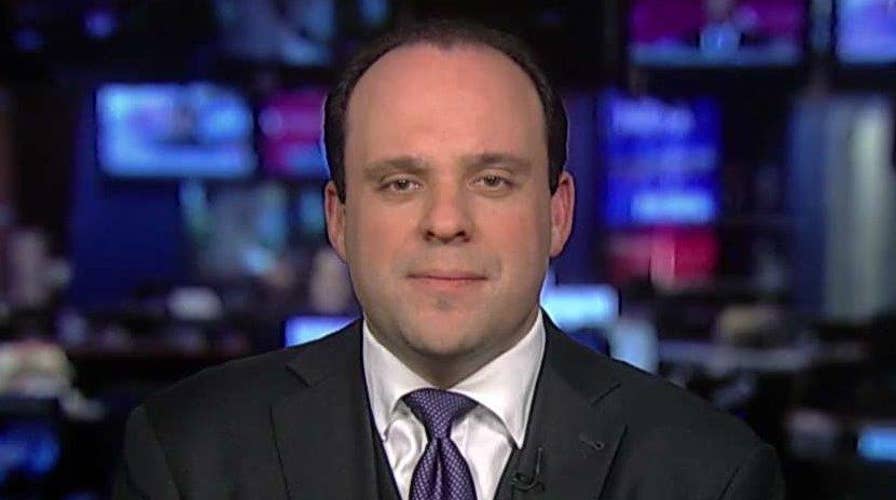Assistant to President Trump on legal battle over travel ban
Insight into the legal challenge on 'Hannity'
As the federal appeals court decides on whether to reinstate President Trump’s travel ban after a contentious hearing Tuesday, legal experts consider which side presented a more compelling argument in court.
It was unclear which way the three judges of the San Francisco-based 9th Circuit Court of Appeals would rule, though legal experts said the states appeared to have the edge.
"I'm not sure if either side presented a compelling case, but I certainly thought the government's case came across as weaker," said Stephen Vladeck, a professor at the University of Texas School of Law.
Lee Gelernt, a law professor at Columbia and ACLU attorney, said on Fox News’ “The First 100 Days,” that both sides did well in court, but he thinks “judges got it right to push back on the U.S. government.”
A ruling could come as early as today and could be appealed to the U.S. Supreme Court.
The appeals court challenged the administration's claim that the ban was motivated by terrorism fears, but it also questioned the argument of an attorney challenging the executive order on grounds that it unconstitutionally targeted Muslims.
The contentious hearing before three judges on the San Francisco-based 9th Circuit Court of Appeals focused narrowly on whether a restraining order issued by a lower court should remain in effect while a challenge to the ban proceeds. But the judges jumped into the larger constitutional questions surrounding Trump's order, which temporarily suspended the nation's refugee program and immigration from seven mostly Muslim countries that have raised terrorism concerns.
The hearing Tuesday was conducted by phone - an unusual step - and broadcast live on cable networks, newspaper websites and various social media outlets. It attracted a huge audience, with more than 130,000 alone tuned in to the court's YouTube site to hear audio.
Judge Richard Clifton, a George W. Bush nominee, asked an attorney representing Washington state and Minnesota what evidence he had that the ban was motivated by religion. The two states are suing to invalidate the ban.
"I have trouble understanding why we're supposed to infer religious animus when in fact the vast majority of Muslims would not be affected."
Only 15 percent of the world's Muslims are affected, the judge said, citing his own calculations. He added that the "concern for terrorism from those connected to radical Islamic sects is hard to deny."
Noah Purcell, Washington state's solicitor general, cited public statements by Trump calling for a ban on the entry of Muslims to the U.S. He said the states did not have to show every Muslim is harmed, only that the ban was motivated by religious discrimination.
Clifton also went after the government's attorney, asking whether he denied statements by Trump and former New York City Mayor Rudolph Giuliani, who said recently that Trump asked him to create a plan for a Muslim ban. Judge Michelle T. Friedland, who was appointed by President Barack Obama, asked why the case should not move forward to determine what motivated the ban.
"We're not saying the case shouldn't proceed, but we are saying that it is extraordinary for a court to enjoin the president's national security decision based on some newspaper articles," said August Flentje, who argued the case for the Justice Department.
The Economist magazine wrote, “At least two of the judges seemed likely to side with those challenging Mr. Trump’s travel ban, and even the third, Mr. Clifton, might join a ruling against the government.”
The Associated Press contributed to this report





